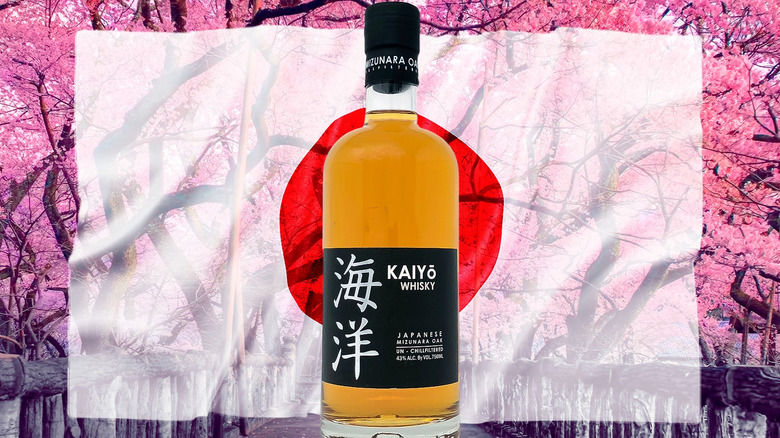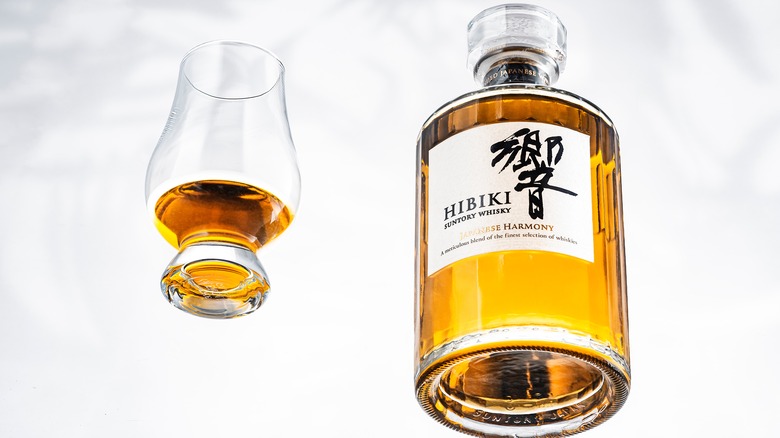The Rare Oak That Japanese Whisky Uses For Its Aging Process
Of the many unique types of whiskey, Japanese distillers have created a spirit all their own. Japanese whisky is known for its Scotch-like character but with less of the smoky, peat-forward notes of its European cousin. Instead, a good Japanese whisky will have a refined, streamlined nature that speaks to the attention to detail of master distillers.
What goes into such a distinctive whisky? Besides the skill of the people who craft it and tight rules governing Japanese whisky's production (it must be completely distilled, aged, and bottled in-country), there's also a special ingredient when it's time to age the spirit. Many distilleries use aging casks made out of mizunara wood. Native to Japan, the mizunara oak was reportedly first used en masse when Japanese people faced serious shortages in the aftermath of World War II. At that time, distillers turned to local materials to keep the whisky-making process moving.
Nevertheless, mizunara is tricky. Because it's relatively rare, highly porous, and doesn't always grow straight, it's tough to build casks out of the material. But when things work right, whisky aged in mizunara barrels can sell quickly and at a high price. With the right maturation period (many say 15 to 20 years is a good minimum), the result is a whisky with aromatic notes of coconut, banana, and spice. It's proven so successful that distilleries far beyond Japanese shores import mizunara wood casks to draw on these unique flavors.
Other ways Japanese whisky is unique
Beyond the use of native mizunara wood, there are other unique factors that have helped Japanese whisky stand on its own, even though the nation's commercial whisky industry has only been around for about a century. What's more, this particular spirit was exclusively available in Japan for much of that time. It only began to seriously make inroads into the international market when Japanese whiskies began snagging awards and wider attention in the early 2000s. It's since become supremely popular, with some choice bottles going for hundreds of thousands of dollars at auction.
Japanese whisky distillers also focus on water quality. The Hakushu distillery (which operates under Suntory Whisky) uses a mountainous granite-filtered water source that's so well-regarded the Japanese government has deemed it one of the best in the world. Indeed, the water is so beloved by Suntory distillers that they've transported it to other distilleries to capture the unique character of Hakushu whisky.
Though multiple companies make whisky in Japan (including craft distilleries), the two largest are Suntory and Nikka. These large companies operate numerous distilleries and have roots in the European traditions of Scotch whisky. Still, the next time you make a highball cocktail with Japanese whisky, you're sure to notice a difference between a peaty Scotch and the delicate, highly refined Japanese spirit in your glass.

